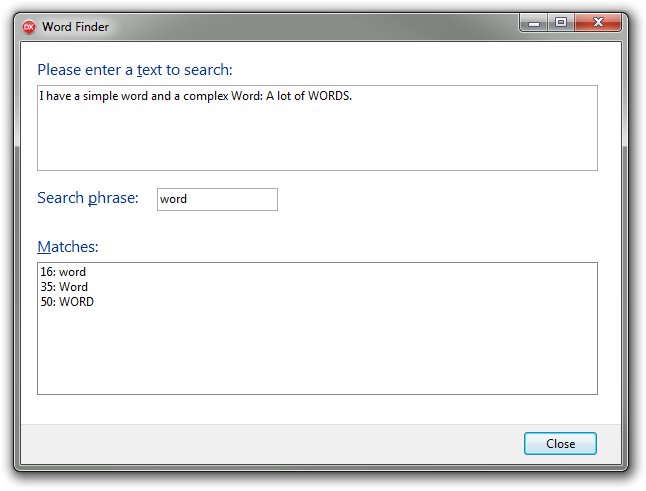[ad_1]
On request, here is how I would do this myself:
First, I want to create a function that performs this operation, so it can be reused every time we need to do this.
I could have this function return or populate a TList<TWordRec>, but then it would be tiresome to work with it, because the user of the function would then need to add try..finally blocks every time the function is used. Instead, I let it return a TArray<TWordRec>. By definition, this is simply array of TWordRec, that is, a dynamic array of TWordRecs.
But how to efficiently populate such an array? We all know you shouldn’t increase the length of a dynamic array one element at a time; besides, that requires a lot of code. Instead, I populate a local TList<TWordRec> and then, as a last step, create an array from it:
type
TPhraseMatch = record
Position: Integer;
Text: string;
end;
function GetPhraseMatches(const AText, APhrase: string): TArray<TPhraseMatch>;
begin
var TextLower := AText.ToLower;
var PhraseLower := APhrase.ToLower;
var List := TList<TPhraseMatch>.Create;
try
var p := 0;
repeat
p := Pos(PhraseLower, TextLower, p + 1);
if p <> 0 then
begin
var Match: TPhraseMatch;
Match.Position := p - 1 {since the OP wants 0-based string indexing};
Match.Text := Copy(AText, p, APhrase.Length);
List.Add(Match);
end;
until p = 0;
Result := List.ToArray;
finally
List.Free;
end;
end;
Notice that I chose an alternative to the regular expression approach, just for educational reasons. I also believe this approach is faster. Also notice how easy it is to work with the TList<TWordRec>: it’s just like a TStringList but with word records instead of strings!
Now, let’s use this function:
procedure TWordFinderForm.ePhraseChange(Sender: TObject);
begin
lbMatches.Items.BeginUpdate;
try
lbMatches.Items.Clear;
for var Match in GetPhraseMatches(mText.Text, ePhrase.Text) do
lbMatches.Items.Add(Match.Position.ToString + ':'#32 + Match.Text)
finally
lbMatches.Items.EndUpdate;
end;
end;
Had I not chosen to use a function, but placed all code in one block, I could have iterated over the TList<TWordRec> in exactly the same way:
for var Match in List do
10
[ad_2]
solved Extract string-token objects from string?
